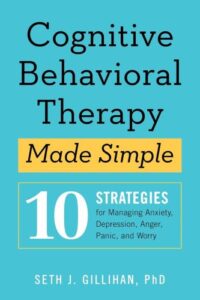Flow
Book Author: Mihaly Csikszentmihalyi
Summary reviewed by:
Terrence Timmons
Terrence Timmons
Analyst
Bachelor of Arts (BA), University Of California, Santa Barbara 2019
With over 4 years of experience as an analyst. Terrence Timmons is committed to analyzing summaries without compromising on quality.
Flow: Summary
Unlock the Secret to Euphoria: The Mysterious State Where You’re Invincible! Mihaly Csikszentmihalyi’s book Flow: The Psychology of Optimal Experience disentangles the complex threads of human consciousness and unravels the secret to achieving a state of optimum satisfaction, fulfillment, and genuine happiness. With a sprinkle of scientific insight, a dash of philosophical wisdom, and a pinch of psychological acumen, Csikszentmihalyi takes you on a voyage through the tapestry of the human psyche.
The heart of the book is the concept of “flow”, an elusive state of deep immersion in an activity where time seems to fade, and you become one with the task at hand. It is the pinnacle of human experience, akin to an artist lost in their art or a musician swept away in a symphony.
Csikszentmihalyi, through decades of research, identifies the essential elements of flow and constructs a rich framework to cultivate this transcendent state in our everyday lives. He argues that it is not merely in the domain of the extraordinary that one finds flow but in the mundane and the ordinary, where true opportunities lie.
Central to achieving flow is the delicate balance between the challenge of a task and one’s skills. When the scales are in harmony, one is catapulted into a realm of heightened focus, productivity, and satisfaction. The book offers invaluable insights into channeling this balance and aligning one’s daily activities with intrinsic goals, which are inherently rewarding.
Not just limited to personal gratification, Flow also explores the implications of the concept on societal scales. From cultivating more engaging educational environments to constructing more fulfilling workplaces, the principles of flow have far-reaching implications in augmenting the quality of life on a global scale.
In an age where distractions abound, Csikszentmihalyi’s book is a lighthouse guiding you through the tempests of the modern world. It invites you to seize the helm of your life, navigate through the storm, and steer towards the horizon of flow, where the treasure of true happiness awaits.
Flow: Genres
Non-fiction
Psychology
Self-help
Personal Development
Flow: Themes
Flow State: Flow is the core theme of the book. Csikszentmihalyi describes it as a state of deep focus and enjoyment in the activity at hand, which results in a sense of fulfillment. For example, a painter completely absorbed in painting experiences flow.
Balance Between Challenge and Skill: Achieving flow requires a balance between the difficulty of a task and one’s skills. If a task is too easy or too challenging relative to one’s skills, flow cannot be achieved. Csikszentmihalyi illustrates this with the example of a rock climber, where the challenge of the climb meets the climber’s skills.
Intrinsic Motivation: The book discusses how flow is linked to intrinsic motivation, which is the engagement in an activity for its own sake, not for external rewards. For instance, someone who enjoys reading for the pleasure of learning is intrinsically motivated.
Autotelic Personality: Csikszentmihalyi introduces the idea of an autotelic personality – individuals who are naturally inclined to pursue activities that result in flow. He uses the example of dedicated musicians or artists who often seek activities that challenge them and facilitate flow.
Applications in Education and Work: The book explores how flow can be applied in education and work environments to improve engagement and satisfaction. For example, Csikszentmihalyi discusses how schools that incorporate more challenging and engaging curriculum can help students experience flow. Similarly, workplaces that empower employees to take on meaningful tasks can foster flow and increase productivity and satisfaction.


Flow
Date Published: 1990
Disclaimer: As an Amazon Associate I earn from qualifying purchases.




